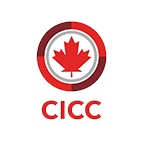The outbreak of the COVID-19 pandemic made the Government of Canada declare certain restrictions in case of travel and immigration. The Immigration, Refugees and Citizenship Canada, together with other government agencies and international associates, continues to carefully monitor COVID-19 and its impacts on Canadian citizens, permanent residents and Canadian operations.
The Immigration, Refugees and Citizenship Canada (IRCC) made few changes to the Canada immigration procedures and deadlines for protecting officials and to accommodate the immigrants affected by COVID-19.
The IRCC has expressed that applications won’t be rejected for non-compliance for the moment of this pandemic. All applications as of now in progress at case processing offices, IRCC centre abroad, and inside the Domestic Network will keep on being processed, however, may encounter delays.
To avoid the additional spread of the coronavirus, the IRCC has briefly shut a portion of its centre for visa application, and others have been reduced to an essential workforce only.
The IRCC may keep on mentioning the essential papers and documents from the candidates, for example, police verification authentications and certificates, biometrics, visas and passports, medical assessment reports, and any records that must be issued by following authorities:
- Chinese
- Iranian
- South Korean
An extension of a total of 90 days is approved for the candidates to provide all the essential documents for processing.
The appointments for information tests, interviews, retests, hearings, or pledge services and ceremonies should be rescheduled within a realistic time so as not to defer processing times additionally.
Until 13th April 2020, all the permanent resident arrival arrangements and in-person refugee claim appointments will be shut for preventing the spread of COVID-19.
Candidates returning to Canada from China, South Korea or Iran will be given an extra 30 days to submit their documents and reports to IRCC and an additional 45 days to obey the demands for a medical opinion form.
Candidates are as yet required to meet the physical existence requirements according to the regular procedure. Additional days for staying in China, South Korea or Iran because of the COVID-19 pandemic will not be calculated as days in Canada.
The urgent applications submitted to IRCC offices in China, Hong Kong, Ankara, and Manila for temporary residence will be considered by the officials.
Until further notification, all biometrics arrangements in Canada have been cancelled. The deadline has now been reached out from 30 days to 90 days for submitting the biometrics.
The Temporary Foreign Workers, Permanent Residents and international students having valid Canadian visa and Canada immigration permits are exempted from travel restrictions and now are eligible to land in Canada (Source: IRCC).
The Government of Canada has declared the closure of all its borders to the majority of the international individuals. People are not allowed to enter either from airports or from the US-Canada border.
Points to note: Permanent Residence
The IRCC will keep on accepting new applications for permanent residence in Canada.
Applications that are completed and finished will keep on processing according to regular procedures.
The incomplete applications because of unavailable reports and documents will be held in the system and will be assessed in 90 days.
New candidates must confirm that whether they have been affected by facility interruptions because of the COVID-19, and will at that point, be allowed a total of 90 days extension to give the essential documentation or else the Canadian officials would reject the applications which are left incomplete.
Points to note: Temporary foreign workers or residence
You can apply for an extension if you are a foreign national in Canada, and your temporary resident status is about to expire. Candidates must complete the online application and meet all the essential requirements.
If your extension application is at present in progress, then you will be able to continue your stay in Canada till the Canadian authorities have made a final decision.
If your temporary resident status has by now expired, then you may be eligible to apply for restoration.
The IRCC will not be waiving any payments for temporary residence applications or extensions.
In a nutshell
The permanent residents and the people applied for or who already have Canada immigration visa must take a note of the changes implemented in the Canada immigration process by IRCC. You can also contact Elaar immigration to know more the changes implemented in the Canada immigration. The experts at Elaar immigration will guide you through the process but due to this outbreak of COVID-19 the Canada immigration process would take more time for completing the immigration process.
Read our another blog: Canada Announces 2020-2022 Immigration Level Plans















